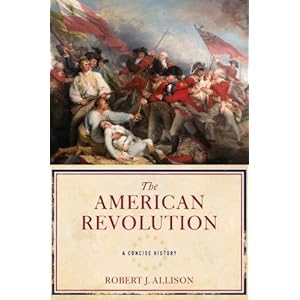The American Revolution Does Not Loom Large in the British Imagination

In the great sweep of British history, the rebellion of the American colonies did not cause severe damage. After the thirteen American colonies became independent, the British Empire experienced its greatest triumphs—defeating Napoleon, absorbing India, colonizing Australia and New Zealand, establishing Hong Kong. Though the sun had set on British North America (except for Canada), but it had risen on the rest of the empire.
For the British Empire, the American colonies were not that important. Britain’s real interests were not in Massachusetts or Virginia, but in Barbados or Bengal; if British eyes focused on North America before 1776, it was to the Ohio River Valley, the vast interior beyond the Appalachian Mountains.
Of course it was a different empire with the Americans out of it. “We might have been a great and free people together,” Thomas Jefferson lamented in his first draft of the Declaration of Independence. But apparently the British people found this prospect “below their dignity.” The Americans saw that the “road to happiness and to glory is open to us, too,” and would travel it alone.
The Americans had no doubt they were on the road to glory and happiness. The fact that their British brethren stubbornly remained on their own road was yet another grievance.
Americans, then, had an exaggerated sense of their own importance to the Empire. At the time, the British considered this quaint, that Brother Jonathan, or Yankee Doodle, saw himself as the equal of his British brethren—and not just of British brethren of his own station or class, but of every Briton including the Monarch.
This notion of equality most irritated British visitors. Frances Trollope’s scathing account of American society, Domestic Manners of the Americans, helped recoup her family fortune, disastrously invested in a Cincinnati department store (Cincinnati was not ready for department stores, nor did it welcome snobs like Mrs. Trollope). She complained that the men spit incessantly, American girls made terrible domestic servants, and that any of the dirty boys she saw in the streets, including young Nick who sold chickens, could grow up to be president.
Her son Anthony visited thirty years later. He was more kind to the Americans, but still was surprised to see New York cab drivers reading newspapers.
Why would a cab driver want to read the newspapers? And what news was there in America? Americans seemed too busy earning money to develop any kind of a culture. Alexis de Tocqueville observed that Americans, were their notions of equality, lacked the social hierarchy that gave Europeans their sense of stability. With no social hierarchy, life became a scramble for survival. Americans had no leisure to write operas or carve statues or build cathedrals. They did not appreciate poetry, but the cab drivers read newspapers.
For much of the nineteenth century, European visitors to America mocked the place for its failure to be more like Europe. The Europeans who came to stay did not mock. They were too busy earning a living. If they were working as cab drivers they would read the newspaper.
Upper-class Europeans continued to mock, until the spring of 1917. Then, with barely six weeks of grain left in British reserves, with much of France taken up by mazes of trenches, the Europeans needed the Americans—grasping, uncultured, uncouth—to save them from themselves. It was not easy to convince Americans—particularly the Americans from Ireland or Russia, who had fled these empires—to come to Europe’s aid. In America they had learned that there were ways to run a nation than other than brute force. The Irish, the Russians, and the Chinese had come to America to build canals and railroads, work in mines and mills, to run laundries and drive cabs, read the newspapers and financed the revolutions that freed Ireland, overthrew the tsar, and toppled the Manchus. That the European ideas of Marx hijacked the revolutions in China and Russia is one of history’s tragedies. That ultimately the ideas of Jefferson will win is one of history’s certainties.
After the Americans had won the war, Europe declined American suggestions for running the world. Instead they tried to put their own shattered lives and empires back together. The Americans of 1776 set out to create the world anew; the Europeans in 1919 tried to create the world of old.
Their failure led to another war. This time England was led by a Prime Minister whose mother was American. (Had his father been American, and his mother English, Churchill said he might have become president). England, and even the Soviet Union, relied on American ships, tanks, trucks, bombs, and men to survive.
By 1945 it was impossible to ignore the reality of American power. The British, under American pressure, allowed their remaining colonies to govern themselves, setting up the Commonwealth Benjamin Franklin had suggested in 1754. With the threat of Russian-imposed Marxism looming, the Europeans allowed American capital to rebuild their ravaged countries, and even allowed American ideas to influence their politics and culture. The four most popular Englishmen of the mid-twentieth century borrowed their name and style from a Texas band; their chief rivals took their own name from the song of a Mississippi bluesman. The nation without a culture now dominates the world’s.
The American Revolution is little remembered, and less appreciated, in England. Can we blame the English for not acknowledging it? The British Empire revived and prospered after American independence; but the American Revolution ultimately made the idea of empire itself impossible to sustain. The Americans had, as Jefferson said, set out on their own road to happiness and glory. But the road is open to all.